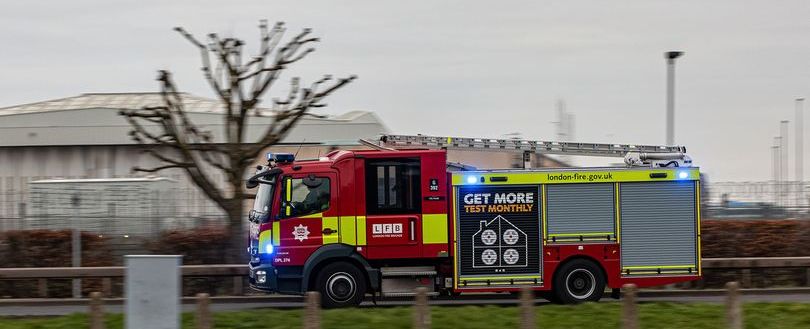
New London Fire Brigade policy on automatic fire alarms
Like it? Share it!
03 June 2024
From 1st October 2024, the London Fire Brigade (LFB) will no longer automatically respond to automatic fire alarms (AFA)'s in most non-residential buildings, including offices and industrial estates, during daytime hours unless a fire is confirmed by a call from a person.
For businesses:
Response confirmation: Check if your building is exempt from the new policy on the LFB’s AFA exemptions page.
Preparation steps: Regularly conduct fire risk assessments, create an emergency plan, and ensure all employees are aware of fire safety protocols. If a fire is confirmed, evacuate the premises and call 999 to report it.
Information access: Visit the LFB’s dedicated workplace resources pages for comprehensive details.
For alarm receiving companies & Responsible Persons:
Adjustments needed: Distinguish between false alarms and confirmed fires. Ensure that the responsible person can communicate any exemptions to the LFB during an emergency call.
Response expectation: LFB will respond to confirmed fires in commercial buildings during daytime hours if a fire is reported or if the premises are exempt.
Training and compliance: Staff training is not provided by LFB. Businesses must ensure compliance with the Regulatory Reform (Fire Safety) Order 2005, which mandates adequate fire safety training for employees in England and Wales.
Exemptions:
Review frequency: Currently, there are no plans to review exemptions. However, new policies for identifying and exempting high-risk buildings may lead to periodic reviews.
Application for exemptions: The LFB is not accepting exemption applications. If you believe your building presents a specific risk, contact your local Borough or Prevention and Protection Team.
Multi-use and specific buildings:
Handling multi-use buildings: If an alarm affects sleeping accommodation or other exempt premises, LFB will respond. The specific nature of multi-use buildings should be communicated to alarm receiving centres.
Schools and animal-related premises: Schools will receive responses during the day even if unoccupied. Premises involving animals are not automatically exempt unless specific risks are identified locally.
Action upon hearing an AFA: Report any signs of fire. For commercial properties with no apparent fire, LFB will not attend.
Insurance and legal duties: Inform your insurers about the new policy. LFB will continue to respond to confirmed fires. LFB’s statutory duties do not require attendance at AFAs unless a fire is suspected or confirmed.
For further guidance, please refer to the LFB's emergency plans and fire safety training requirements to ensure compliance and safety within your premises.
Read the full article here.
Our eNews provides regular insight into industry trends, news headlines, and product and service information. For more articles like this Subscribe to our enews.
Related news
-
Record Rise in E-Bike and E-Scooter Fires Across London
28 January 2026
Related resources
-
Passenger Service Vehicle - Guidance Note
05 September 2023
